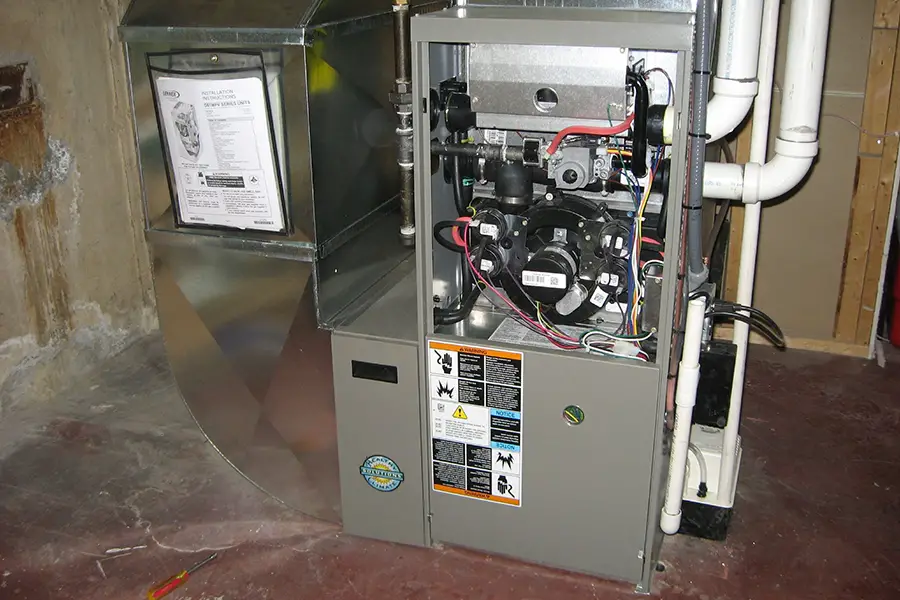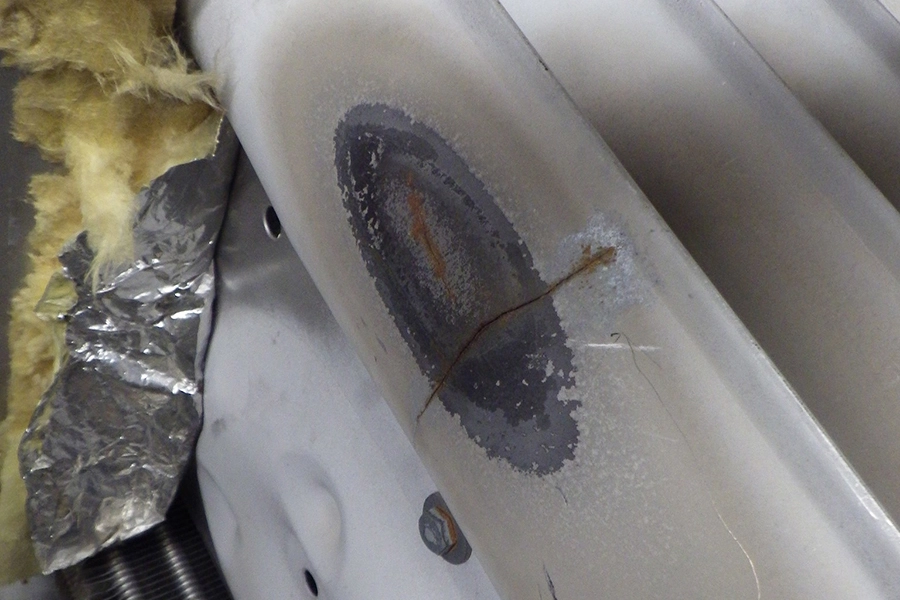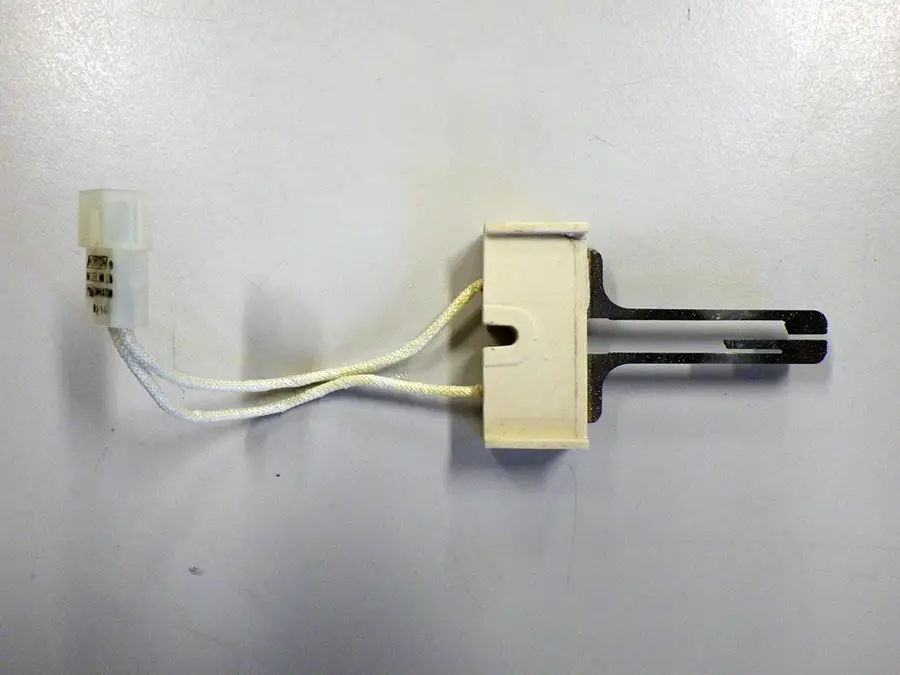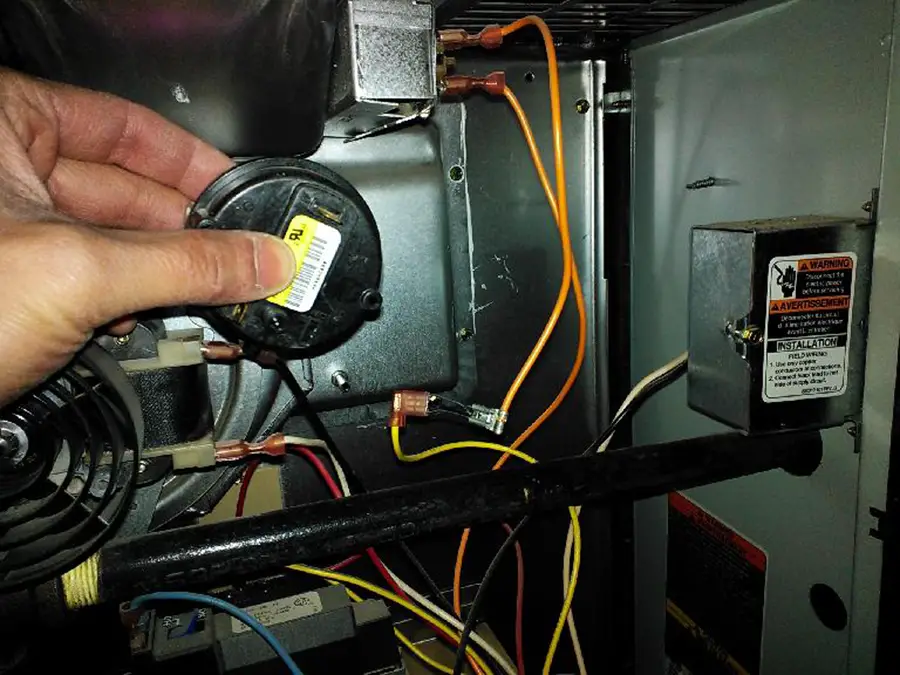It seems like everything in our home needs electricity to run, but have you ever thought about your furnace? If it’s a gas unit, then maybe you believe it is powered by the gas, the same way a gas water heater is. Unfortunately, that’s not the case. A gas furnace does require electricity for it to work correctly unlike gas appliances like water heaters, which do not need any electrical components to run.
Why does a furnace need electricity?
If you have ever had the opportunity to see how gas appliances operate, then you might question why your furnace needs electricity. Gas water heaters, stovetops, wall heaters, and some basic gas ranges can all work without electricity. So why does a furnace need electricity when none of these other things do?
Essentially, your gas, propane, or oil furnace will need electricity to run because there are other components (like fans) that need to work beyond just the burning of fuel for heat. Even though the gas can burn and create heat, it still needs to be pushed throughout your home. This requires the use of a blower fan, which must have electricity to run.
In addition, as efficiencies of furnaces have increased, the mechanics involved in the operation have had to increase as well. This means that while some older models of furnaces may have been able to naturally draft the exhaust gasses out of your home through the exhaust vent, the newer models must have a fan for this purpose. This is especially true if you have a higher efficiency furnace, which has a more complex heat exchanger system. This exhaust fan’s sole purpose is to suck the burnt fuel and gasses through the heat exchanger and expel it out of your home through your exhaust vent.
You may also have an electric furnace which we call air handlers in the HVAC industry. They do not have any type of flame in them, and they rely on what are called heat strips to create warmth. These are coiled wires that are situated above the blower fan, which heat up to red hot as electricity flows through them when the thermostat calls for heat. They operate on the same concept as the heating components of your toaster; the wires turn red hot to produce heat. If you have an electric furnace then you must have electricity for it to work.
Are there any differences based on fuel type?
The main types of fuel that you will see when it comes to furnaces are natural gas, propane, oil, or electricity. All these options will require there to be electricity for the furnace to operate. Running off a different fuel source may mean that there is a difference in the way the fuel is utilized, but you will still have to have a fan of some kind to blow the air throughout your home. If you don’t have the fan running the furnace will overheat, shut itself down, and risk causing damage to your equipment.
How do I run my furnace when the power goes out?
If you’ve lost electricity to your home, you may be able to still use your furnace. The options for this to work would be if you have a solar system, a battery backup system, or a whole home generator that you could switch the power source to.
Each of these options could leave you with a near-seamless transition from not having electricity to having power again, as long as it’s equipped with an automatic transfer switch. This switch will change your home’s energy source from the electrical grid to whichever alternative source(s) you have. If not, the switching process is manual but still simple enough.
If you do not have one of these backup energy sources, then you may be forced to attempt to use a portable generator. This can be a viable option, but it may require a substantial amount of work to get it operating correctly. It will require some electrical knowledge to avoid causing any damage to your home’s electrical system and the infrastructure to hook up your portable generator will have to be already installed in your home.
Can you run a furnace on a generator?
If you don’t possess any of the automatic systems previously mentioned, but you want to make sure your family can stay warm, a portable generator could be an option.
Your gas furnace fans, which are why you need the electricity, are run off 110 volts, or 110V. This means that it runs off the same amount of power that feeds the plug-ins throughout your home, and the same type of outlet that will be located on your portable generator. A lot of times furnaces are installed with a “pigtail”, or the male end of a cord, which is wired into the furnace and plugged into an outlet. If you’re lucky enough to have one of these you can unplug it from the wall and use an extension cord to plug into your generator, giving you the power you need for your furnace.
If you don’t have a pigtail, you will have to either connect a wire to the power wires at the furnace or at the breaker panel. You will still have to have a male end at the other end of the wire to be able to plug into your generator. It is best to unhook the wires from the breaker and connect them this way. With this option, the power from the generator is not back-feeding into the rest of your panel. It is also a good decision to shut your main breaker off so that no power can back-feed into the main power lines and put the workers in danger. If you are not a professional who knows how to effectively work with your home’s electrical system, DO NOT attempt to do this on your own. Reach out to a professional or have a friend or family member who is experienced with electricity give you a hand.
If you have an electric furnace, it will be nearly impossible to use a portable generator. Most portable generators are not going to have the amperage required to power your electric furnace. If it does, then you will need a person who is well versed in electrical components to connect it without causing damage, as there is more than one breaker that feeds an electric furnace. Having no power in the cold is a bad situation but tearing up your HVAC equipment because of a mistake you made while trying to hook it up would make a bad situation even worse.
Wrap up
We’ve learned that your furnace, regardless of fuel type, will need electricity to run. There are options available to provide back-up electricity to run a furnace, but electric furnaces will require a more substantial amount of power to run. If you want to be able to heat your home if the power is lost, you will need to plan ahead to be prepared and hire the correct professional to get you ready for an emergency.




